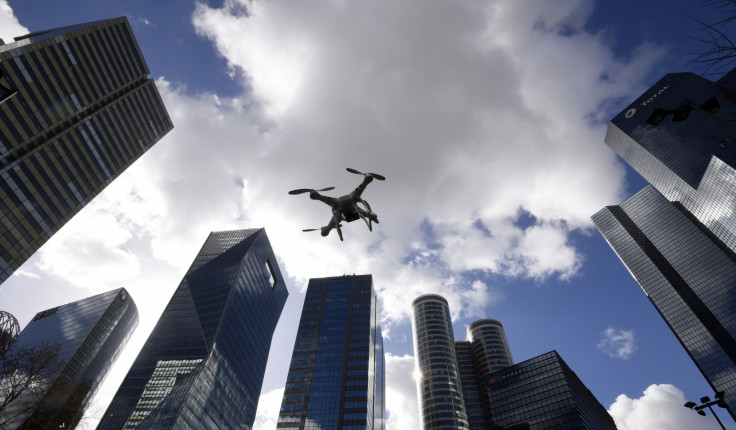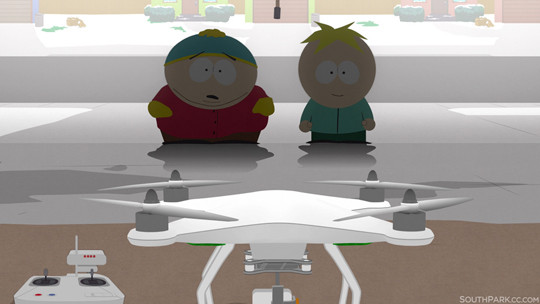South Park drone parody reflects real concerns about UAV registration and regulation

An episode of anarchic cartoon South Park which deals with the use of drones to take nude images of unsuspecting victims highlights real world issues which the drone industry needs to address.
Speaking at the SkyTech 2015 drone conference in London, Gerry Corbett from the Civil Aviation Authority (CAA) referenced The Magic Bush episode of South Park which aired in October 2014, where characters use drones to spy on people and take nude photos.
In the episode, when the police come to prosecute, the drone owner claims he and his son were not flying the drone and would never do that, claiming the drone had been stolen.
"You can identify the person who owns the drone, but then they could say they weren't the one flying it so how could you prosecute them?" Corbett asked.
Corbett was speaking during a panel discussion titled Regulating The UAV Industry with the main topic being a possible registration system where all drone operators, whether private or commercial, would have to be licensed and known to a governing body.
Restricting drones

"There is a thought about having the chip in the drone not work until they have been registered, but where's the cut-off point for little Johnny flying his toy helicopter drone in his back garden – at which point do we have to get it regulated?" Corbett asked.
"I'm slowing coming round to some of the ideas, but the question is, will it be a Europe-wide or worldwide registration system, and we'd have to get the manufacturers to manage it, and there is the issue of do you regulate the chip or the flight controller?"
A key topic being discussed by regulators and UK businesses that work with unmanned aerial vehicles (UAV) is how the UK government intends to police the rules it has set out to regulate the use of drones.
On 5 March, the House of Lords EU Committee released proposed regulations stating that drones weighing less than 7.5kg can be flown for leisure purposes (or under 20kg for commercial purposes), but they cannot be flown closer than 50m to people, buildings or airports, or flown out of sight of the drone operator.
Tony Henley, an aerospace consultant, said: "People who want to fly drones will do it nevertheless, but insurance is needed. But who enforces these rules? The Civil Aviation Authority doesn't want to do that and the police doesn't want to get into that as they have enough to do with their day job. Rules like staying 50m away or under 7.5kg are going to be tough to enforce."
One of the problems facing the CAA is that it does not want to be seen to be over-regulating and limiting the growth of the industry in the UK. However it has to balance this with the fact that private businesses and individuals want more privacy.
Rogue operators
Paul Rigby, managing director of drone aerial photography company UAViate, thinks that education might be the answer: "The money should be spent on education. It would be better to get more influence into society, promote more clubs.
"In the old days, the BAA had a club and you wouldn't fly a radio controlled aircraft unless you were part of the club and you learnt the rules by osmosis. If we could get it to a state where it's socially unacceptable, than people would be less likely to run roughshod and fly drones without following regulations."
One of the problems for commercial operators of drones is that a lack of regulation leads to the proliferation of what they term as "rogue operators".
Nick Pain of Shooting High Aerial Surveys and Photography, said: "I've had clients contact me and ask for a quote for a photography job, but then they call me back and tell me they've found someone who can do it for half the price. I warned the client that this person might not be insured, but they don't seem to care or know this industry is even regulated or needs to be."
Nigel Willis of Aerial Photography Pros concurred: "Me and my son are just trying to make an honest living from piloting drones and I don't think the public has any idea about these rogue operators.
"I'm quite upset about this as quite big companies are flying UAVs doing commercials for BMW, but when you look them up on the CAA website, they're not regulated and they're big companies making lots of money."
© Copyright IBTimes 2025. All rights reserved.






















